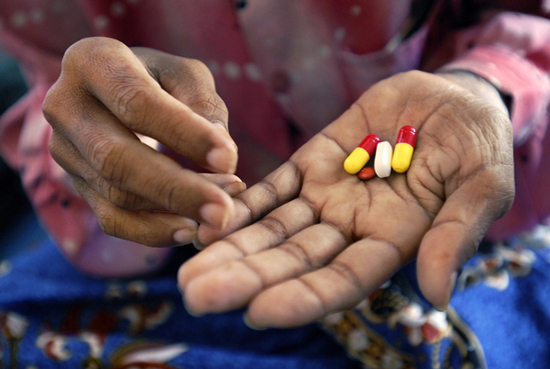RCEP negotiations should not restrict global access to affordable medicines and vaccines

MSF | 20 October 2017
RCEP negotiations should not restrict global access to affordable medicines and vaccines
Incheon, 20 October 2017 – As 16 countries negotiating the Regional Comprehensive Economic Partnership (RCEP) agreement meet this week in Incheon, Korea, the international medical humanitarian organization Médecins Sans Frontières (MSF) is appealing to Korea and Japan to withdraw proposals that could hinder global access to affordable generic medicines and life-saving vaccines.
Negotiators from the 10 member countries of the Association of Southeast Asian Nations (ASEAN) and its free trading partners – Korea, Japan, China, India, Australia, and New Zealand–are meeting in Incheon for the 20th round of negotiations on RCEP, a multilateral trade deal that covers nearly half of the world’s population.
The governments of Korea and Japan are pushing for measures in the RCEP deal that would extend pharmaceutical corporation power through broader intellectual property (IP) protection that hinders competition and trade in life-saving generic medicines and vaccines. The measures go beyond what is required by the World Trade Organization (WTO) Agreement on Trade-Related Aspects of Intellectual Property (TRIPS), and are called ‘TRIPS-plus’ provisions. This would mean extending drug and vaccine patent terms and entrenching new monopolies in the national drug regulatory system (‘data exclusivity’) in countries like India, which is known as the ‘pharmacy of the developing world.’ This, in turn, would delay market entry of other manufacturers, blocking price-lowering competition in drugs and vaccines that would benefit people across the world.
MSF has witnessed the negative impact of monopoly pricing on life-saving medicines and vaccines in its medical projects all over the world, including for medicines used to treat HIV, drug-resistant tuberculosis (DR-TB) and hepatitis C, as well as with pneumonia vaccines.
“The balance between public health and the intellectual property regime seems to be broken,” said Thierry Coppens, General Director of MSF Korea. “Protection of unmerited intellectual property is blocking development and introduction of new and affordable quality drugs and vaccines. This impacts humanitarian actors like MSF globally, but also hinders Korean patients from accessing more affordable health products in a timely manner. A large number of patents and other intellectual property rights held by global pharmaceutical corporations stand in the way of Korean manufacturers – who are pioneers in the development of more affordable biological medical products such as life-saving vaccines – from making them available to people and governments. The burden of the broken balance falls not only on our patients, but also on health systems that are struggling to provide health care in the midst of spiraling monopoly prices for medicines.”
Weak and ‘evergreening’ patents granted in South Korea and India already block the early launch of more affordable pneumococcal conjugate vaccines (PCV) needed to tackle the increasing burden of infectious pneumococcal disease. Pneumococcal bacteria are one of the leading causes of pneumonia in children, and nearly a million children lose their lives to the disease every year.
Pfizer has been building so-called ‘patent thickets,’ restricting development and competition in the area of PCV. Pfizer (previously Wyeth) filed and obtained patents in South Korea and India to create barriers to the development of less-expensive versions of PCV. One such evergreening patent involves the mere addition of serotypes to the already established 7-valent pneumococcal vaccine - a tactic to preserve Pfizer’s monopoly - for many more years. MSF and vaccine manufacturers are challenging Pfizer, and trying to get the patent revoked.
“It is ironic that the RCEP agreement will not address the issue of evergreening practices that lead to patent offices erroneously granting monopolies on inventions for obvious modifications of existing medical products, but instead aims to extend the terms of such unmerited and spurious patents. As a result, Korea and India will have to rely on imported pneumonia vaccines, despite their own manufacturers having the capacity to develop and market more affordable versions,” said Leena Menghaney, MSF Access Campaign representative who is in Incheon to follow the RCEP IP negotiations, which start October 21.
Today, high medicine prices charged by pharmaceutical corporations with monopolies are already straining the budgets of governments around the world, and leaving treatment providers like MSF, and patients, without access, including in high-income countries. In MSF’s experience, competition among generic producers has proven an effective way to bring medicine prices down and increase access to treatment for people in need. For example, in 2000, when MSF began providing antiretroviral (ARV) treatment for HIV/AIDS, the cost of treatment was more than $10,000 per year for one patient. Today, thanks to affordable generic drugs, the cost of treatment has dropped by more than 99% to less than $100 per year per patient.
But for other diseases today, prices can exceed $100,000 per person for new cancer therapies, and $1,000 per pill in some countries for hepatitis C drugs, because of pharmaceutical corporation market monopolies. These medicines mean life or death for patients the world over, including those in high-income countries like South Korea.
“Extending the intellectual property regime is not a solution to the lack of innovation and access to medicines for patients across the globe,” said Brian Davies, East Asia Head for MSF’s Access Campaign. “It is time for the governments to rethink the right balance between public health and corporate gains and stop pushing for ever-higher levels of monopoly control of medicines through free trade agreements.”





